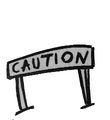Chapter 6
Your Values
In This Chapter
• Understand the role of values in your career choice
• Take the Values Sort Assessment
• Make the link between your values and work/life preferences
As you build your profile of what is really important to you in choosing a career path, values will sit at the very foundation of your decision making. Values are key in helping us determine our career/life direction.
While value decisions are always part of our lives, sometimes we think about our values only when situations arise that force us to consider them. Think about a recent time in your life when you were faced with a critical decision. What were the value choices involved? A common example most of us face in our lives is having a friend or co-worker ask us to lie for them—or “bend the truth.” In this chapter, you will have the opportunity to reflect on your values and choose those values you want to guide your career and life decisions.
Defining Values
Have you ever stayed up with friends for half the night debating the rights and wrongs of a situation? Think about the controversial topics over the centuries. The death penalty, civil rights, going to war, abortion rights—all of these ongoing debates involve principles of right or wrong. Values are driving our positions and beliefs. Values of equality, national security, salvation, freedom, a world of peace are just some that might underlie these issues. Values are the basic notion that each individual holds about what is right and wrong. They are highly regarded beliefs and attitudes, in which we have an emotional investment. And we are willing to act upon them. Our values are reflected in our behavior.
In a speech given at a recent leadership conference, a senior executive stood before 250 people and said that values were the key to his company’s success. His company focused on identifying company values and having each employee practice these values on a day-to-day basis. Companies see a clear connection between having a well-defined value system that guides actions and gets results and achieving company goals. In the same way that companies use values as guides to decision making and behaviors, individuals can do the same in making their career and work environment choices. Our ability to identify our core values—those most important to us—is a basis for making clear decisions about what will make us happy in our career/life choices. Our values shape our character and define who we really are.

Career Lingo
Core values are the big ones—your most important values. These are the ones that really make a difference in how you behave and directions you choose. We all have many values that are important to us, but we are looking for those that are at the core of defining who we are.
There are several influences on how we choose our values. These include parents, extended family, friends, environments we grow up in, and our national and ethnic cultures. The greatest influence is just who we are, the outlook and personality that we bring into the world. Values are complicated. They have a tendency to be pretty stable, although some can change as we grow and develop. We rarely throw out the baby with the bath water. But selected values may come and go. There are times when we might want to throw out values that were important in our family. Then when we turn about 35, we start to reclaim some of them. Family behaviors can also be a source of helping us define values that are opposite from ones we observed growing up. Then there are times we embrace change and adopt values that make us better people. If we have bent the truth, we decide that honesty is a value we want to have. This becomes a guide for our behavior going forward.
There are two basic types of values that operate in our lives, and the following categories are adopted from the values studies published by Milton Rokeach in his book, The Nature of Human Values, (Free Press, 1973). Let’s take a look at these two types of values: the life you want to live and the day-to-day actions you take.

Stop-Look-Listen
It’s never too late to rethink your values. Don’t box yourself into a definition of yourself that is based on old beliefs or attitudes. You are constantly changing and having new experiences and insights. Take advantage of this, and choose new values that will guide your behavior.
The Life I Want to Live
These are values that we hope to achieve in our lives. They represent the way we want to be living our lives and/or the type of life to which we aspire. They represent states of being such as having a comfortable life, being happy, and having mature love. Being clear about how we envision our lives and what states of being would be most satisfying is a basis from which we can make good career/life decisions. After all, who wouldn’t want to line up their values with the work they do and the life they lead?
Day-To-Day Actions
These are the values that guide our behaviors on a daily basis. They also can be directly connected to helping us achieve the life we want to live. Day-to-day values include being loving, courageous, capable, and self-controlled.
As an example, Sam’s highest value in life was attaining a state of happiness on an ongoing basis. In order to do this, she practiced the values of cheerfulness, being loving, honest, and forgiving. She chose these values because that is how she attains happiness in her life.
Values Sort Assessment
This assessment will help you to determine your top five values for “The Life I Want to Live” and for your “Day to Day Actions.” In total, you will end up with 10 values that represent your long range goals for your life as well as day-to-day actions that will help you to achieve your long-term goals. Your final list of values will provide guidance for the career and life decisions you will be making. They are the foundation for who you are right now and the way you want to live your life.
Part 1: The Life I Want to Live
Circle those values that most reflect the life you want to live. Put a check in front of the five values that are most important to you.
• Fairness
• An exciting life
• Self-respect
• Happiness
• Beauty/aesthetics
• Community
• Wisdom
• Inner harmony and peace
• A comfortable life
• Wealth and prosperity
• Health and wellness
• Accomplishment/Achievement
• Faith/spirituality
• Friendship
• Love
• Family
• Financial security
• Peaceful world
• Power and influence
• Fun
• Loyalty
• Equality/Equity
Part 2: Day-to-Day Actions
Circle those values that most reflect your day-to-day actions. Put a check in front of the five values that are most important to you.
• Collaborative
• Ambitious
• Honest
• Kind
• Make a difference
• Loving
• Respectful
• Operate with integrity
• Open minded
• Fight for a cause
• Responsible
• Intellectual
• Imaginative/creative
• Trustworthy
• Being an expert
• Capable
• Forgiving
• Take risks
• Help others
• Self-controlled
• Independent/self-reliant
• Logical
Now that you have identified those values that are most important to you in guiding your behavior and decisions, it’s time to dig a little deeper. Each of us has a slightly different twist on why we chose a value. Say you chose an exciting life as a primary value. It might mean travel and adventure in different cultures to you. For someone else, it might mean living in the Big Apple, dressing to the nine’s, and going to clubs every night. So now I want you to take each of your ranked values from both lists and be very specific about the reasons you chose each value. Then identify any career implications that come to mind right now based on these chosen values.

Insider Tips
Take the time to delve into what the values assessment results really mean for you. Ask yourself some questions. For example: Why am I drawn to these values? What do each of these values really mean to me? When you can answer questions based on your results, then you can begin to identify possible career implications.

Part I: The Life I Want to Live

Part 2: Day-To-Day Actions
Now that you have ranked these values in order, record The Life I Want to Live and Day-To-Day Actions in your Career Profile Map in Appendix A.
The Least You Need to Know
• Values are key in helping us determine our career/life direction. They are highly regarded beliefs and attitudes, in which we have an emotional investment that forms our decisions and behaviors.
• “The Life I Want to Live” values represent the type of life we envision for ourselves. If we looked back at the end of our lives we could say that we lived these values. Examples are an exciting life, one of self-respect, having recognition, and happiness.
• “Day to Day Actions” are a second category of values. They complement and support “The Life I Want to Live” values, and they guide our day-to-day behaviors. Examples are being creative, open minded, respectful of self and others, and being truthful.
• Sorting out our values helps us to lay the foundation for making career decisions that will make us happy and productive in our lives.
..................Content has been hidden....................
You can't read the all page of ebook, please click here login for view all page.
